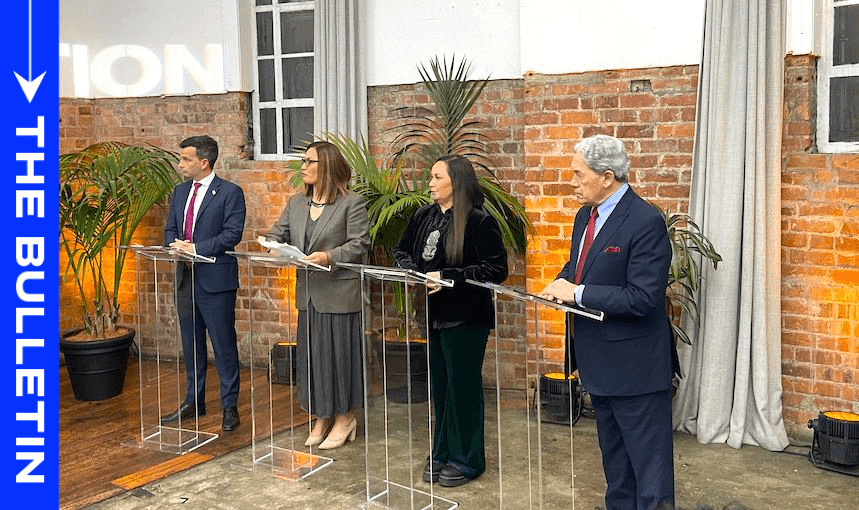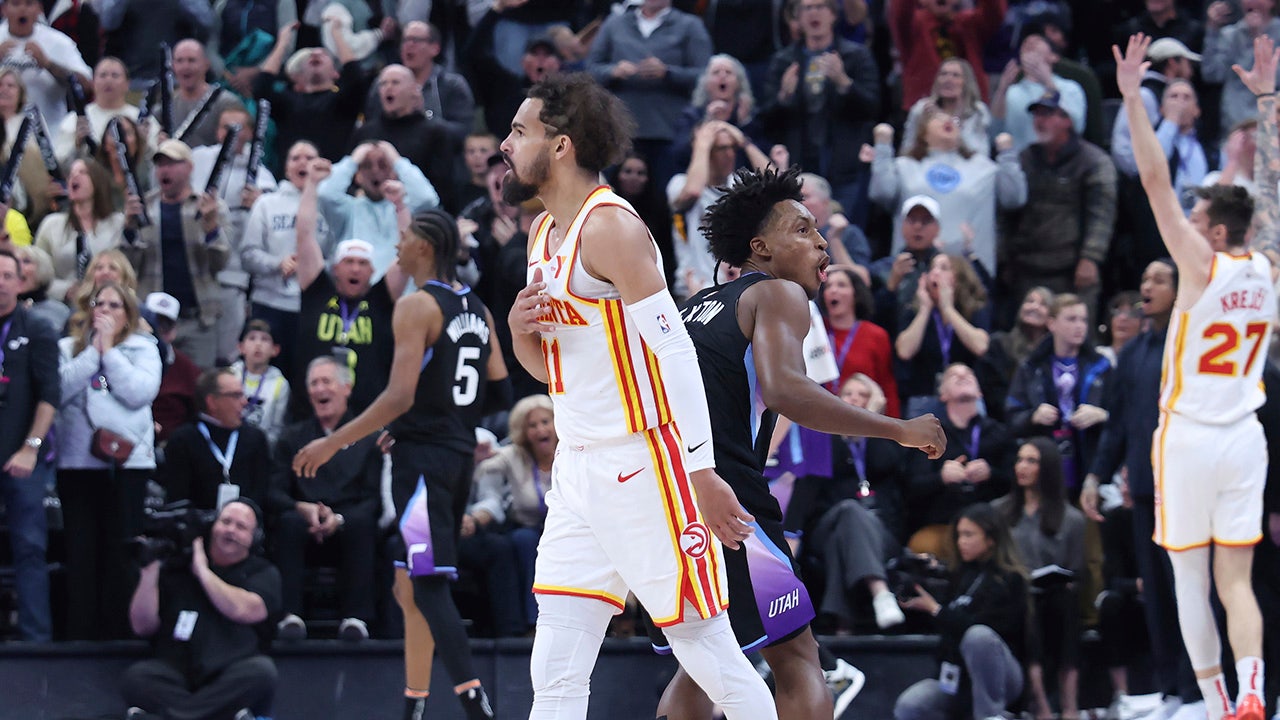Winston Peters got his mojo back, while Marama Davidson was the star of the show, writes Catherine McGregor in this excerpt from The Bulletin, The Spinoff’s morning news round-up. To receive The Bulletin in full each weekday, sign up here.
Finally, some debate fireworks
It was, says Toby Manhire this morning, “an espresso martini” of a debate after the prescription-free Mogadon of the Chrises’ display on Tuesday. The Newshub Nation Powerbrokers debate, featuring the leaders of Act, the Greens, NZ First and Te Pāti Māori, may not have always been the most edifying of spectacles, but it provided sound evidence for why voters are flocking to smaller parties this election. Commentators including Glenn McConnell at Stuff and Michael Neilson at the Herald say the debate was fiery, unpredictable and often funny. Many of the laughs came at Winston Peters’ expense, including some delicious snark from Marama Davidson who, Manhire writes, “was the most impressive of the bunch, alternating mischief with impassioned moments”. Both Newshub’s Jenna Lynch and NZ Herald’s Simon Wilson agree Davidson was the standout, with Lynch surmising that her buddy-buddy act with Debbie Ngarewa Packer (they even high-fived at one point) was aimed at demonstrating the contrast between a potential Greens-Te Pāti Māori working relationship and a fractious National-Act-NZ First coalition.
Phantom recession confirmed, GDP data better than expected
As trailed in yesterday’s Bulletin, the latest GDP figures show NZ is not only out of recession, but the country was actually never in one at all. Stats NZ has revised its data for March from a fall of -0.1% to a fall of 0.01% (basically zero), Susan Edmunds at Stuff reports, which means NZ didn’t meet the widely accepted threshold for a technical recession which is two back-to-back quarters of negative growth. The NZ economy grew by 0.9% in the three months to June – slightly more than many economists, and the Reserve Bank itself, were predicting – driven by big increases in exports and government spending, and by 140,000 new migrants with new homes to kit out and cars to buy. But the good news may not last: high interest rates will continue to act as a drag on the economy, while the major slowdown in China will continue to have ripple effects on NZ exports. Edmunds writes that Kiwibank expects the economy “to slip into a shallow and short recession later this year” – for real this time.
Act tightens its hypothetical purse strings
Act has adjusted its alternative budget in response to last week’s pre-election fiscal update (Prefu). Leader David Seymour says the Prefu revealed that “the cupboard is bare” and so the party has revised its original plan for two tax rates, 17.5% and 28%, and is now proposing three: 17.5%, 30% and a phased-in top rate of 33% for income over $180,000. The revisions also include a speedier increase of the superannuation eligibility age to 67, and a delay to its planned increases to defence spending. Previously announced elements of the fiscal plan include the scrapping of the Climate Emergency Response Fund, the Energy Efficiency and Conservation Authority, and the Climate Change Commission. The Provincial Growth Fund, Callaghan Innovation, domestic and international film subsidies, and workforce development councils would also go.
What would a 27% vote share mean for the future of Labour?
While we’re all concentrating on what a change of government would mean for the parties on the right, there’s been rather less consideration of the potentially devastating effect on Labour and its future. In a column accompanying the new episode of RNZ’s Caucus podcast, Tim Watkin writes that if the party’s current polling of 27% holds on election night, Labour could end up with just four list MPs. “It would see the exit of senior MPs Andrew Little, Adrian Rurawhe and David Parker. But perhaps more importantly – if some marginal seats also fall in a swing back to National – Labour could lose its next generation leaders, such as Peeni Henare, Kieran McAnulty, Ginny Andersen, Priyanca Radhakrishnan and Camilla Belich.” With Hipkins confident National’s polling has peaked, Labour will be hoping its rebound is right around the corner.





















Discussion about this post